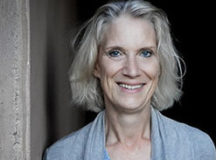by Joanne Nelson
Memoir, 180 pages
Published August 11, 2020, Vine Leaves Press
Reviewed by Bill Mathis, http://www.billmathiswriteretc.com
About the Book
Against a background of family runaways, award-winning memoirist Joanne Nelson explores what it takes to stay when the going begins to dazzle and the staying seems way too ordinary. With a great grandfather who disappears, a grandfather who strays, and a father who walks away, she’s lived a life liable to give way at any time. In unflinching prose that is by turns intimate and humorous, she dives deep into her own role (and even culpability) in a childhood marked by disruption, emotional abuse, and parental alcoholism.
Nelson’s working-class roots and catholic schoolgirl upbringing, experimentation with all things negative, and hopeful creation of a new family life all serve a passionate story that examines the many ways we leave our communities, our families, and even ourselves. It will surprise no one that she became a psychotherapist—working with families, children, and in schools to help others on a similar journey. Her innovative observations and careful attention to detail create an engaging narrative of just how quickly our pasts become the now—and just what we’re going to do about it!
Throwing out her mother’s empty booze bottles found in the
breezeway attic, eating a sandwich at her deathbed, and recalling how well her
mother danced only hint at the gamut of emotions and truth so elegantly
expressed by Joanne Nelson in her memoir This is How We Leave.
There are many ways to leave relationships: leave a note and walk out; meander away and never return; drink enough that one’s children don’t want to be around them; drink oneself to an early death; or experiment with risky practices trying to kill the pain. The bottom line, however, is that you can never truly leave family. In one manner or another, family is always with you. The times you leave and come back, how you cope with the loss—those missed opportunities—and how you make sense of the leaving is what I gained from this excellent book.
Beautifully written, Joanne Nelson explores her family and herself in scenes written from her life of growing up with an alcoholic mother who, even when physically present wasn’t there; a father who left the family and connected with Joanne through the window of his car parked along the street as she walked to school; and her knowledge of a great-grandfather who abandoned his family.
She contrasts the uncertainty and pain of her homelife with being able to visit her grandparents. Her snuff-dipping and spitting grandfather took her kite flying and played games with her. Her grandmother created a homey, cooking, crafting environment in their modest trailer home. It was a space of peace and certainty.
The book begins with Nelson in her home office describing a photo of her family taken when she was young at her brother’s birthday party. “We stand close together and take our cues from those on the other side of the table, the adults waiting for just one decent shot without all that goofing around so they can eat before the coffee gets cold or the candles burn down the house.”
How long do we take our cues from those on the other side of the table? At what age do we stop?
Joanne ends this scene by writing, “Those bookshelves hold the answers to why I’m down here: the manuscripts recounting stories of escape or return and the mementos that tell their own suspended, yet scripted tales. It’s the dual perspective of the little girl held close by her brothers in a corner of the kitchen, safe behind glowing candles of the woman at her desk in a basement office—the soft hum of the dryer in the background, pictures of her family surrounding her—who just wants to tell about it.”
After reading This is How We Leave, I’m not sure we ever quit taking our cues from those on the other side of the table. But how we leave, why we leave, how we come back to say goodbye—even while eating a sandwich—is critically important. Joanne Nelson goes deep in the gut to reveal truth and honesty like few other authors I’ve read.
I highly recommend this book. 5 Stars.

Joanne Nelson’s writing appears in literary journals such as
Brevity, Midwestern Gothic, the museum of americana, Consequence, and
Redivider. In addition, she is a contributor to Lake Effect on 89.7 WUWM, her
NPR affiliate based in Wisconsin. Nelson lives in Hartland, Wisconsin, where
she develops and leads community programs, maintains a psychotherapy practice,
and adjuncts. More information is at wakeupthewriterwithin.com
Photo credit: Jia Oak Baker

No comments:
Post a Comment